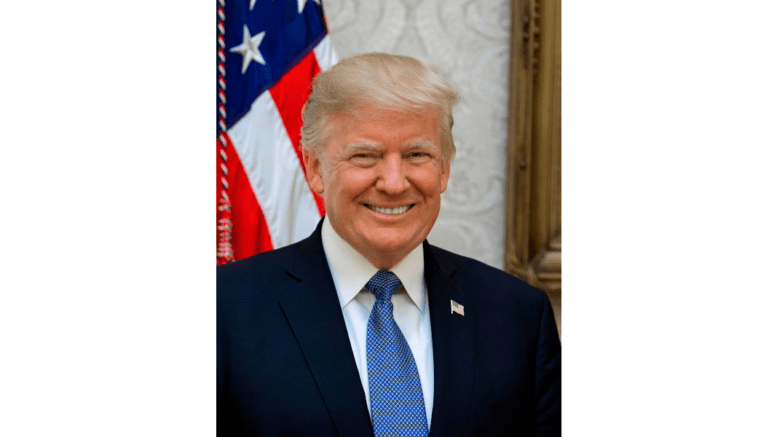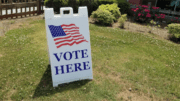by Stanley Dunlap, Georgia Recorder [This article first appeared in the Georgia Recorder, republished with permission]
November 17, 2023
Fulton County Superior Court Judge Scott McAfee issued a protective order Thursday prohibiting prosecutors and defense attorneys from publicly sharing evidence containing sensitive information in the 2020 presidential election interference case.
McAfee’s protective order will cover witness statements and other evidence that the Fulton County District Attorney’s Office and lawyers representing the 19 defendants deem to warrant confidentiality. The order does not apply to evidence that has been publicly presented in other cases or that has been independently acquired by defendants and their counsel.
In Thursday’s court filing, McAfee wrote that his order is more narrowly tailored than a blanket umbrella barring all evidence from coming to light prior to trial. McAfee’s order follows the parameters proposed by former Georgia Republican Party chairman and defendant, David Shafer, that were agreed to by prosecutors and several co-defendants, including Donald Trump, former Trump attorneys Rudy Giuliani and John Eastman, and ex White House Chief-of-Staff Mark Meadows.
Prosecutors are pursuing a felony racketeering case against Trump and 14 of his allies that accuses them of illegally conspiring in Georgia and several other states to overturn the GOP incumbent’s narrow loss to Democratic nominee Joe Biden in the 2020 presidential election. Four people indicted in August as part of the racketeering case entered a plea bargain in October.
Under Georgia law, a judge may issue a protective order in felony cases if there is sufficient belief that the public disclosure of information would pose a substantial physical or economic threat to witnesses.
The extensive media coverage of the sweeping election interference case means that evidence that is not kept under seal will be widely reported, McAfee said.
He also expressed concern over how allowing the unfettered ability to share evidence with the public can undermine the “smooth functioning of the discovery process.”
The sharing of evidence between attorneys is designed to prevent unnecessary surprises at trial and level the playing field. The public airing of sensitive evidence may result in attorneys delaying turning over certain evidence, McAfee wrote.
District Attorney Fani Willis filed an emergency motion on Tuesday seeking a protective order prohibiting the public release of any evidence disclosed in the case after several media outlets obtained video footage of witness statements provided by four co-defendants as part of their plea agreements.
“Such a logistical roadblock was already demonstrated in this case when the state, in reaction to the public release of the recordings of recent proffers given by four defendants, indicated that all subsequently produced videos would only be viewable by defense counsel in- person,” McAfee said. “Only with full and unimpeded discovery will a case as cumbersome as this ever stay on track and be ready for trial without inordinate delay.”
According to the order, Fulton prosecutors are required to mark evidence as sensitive when turning it over to defense attorneys, who will have 14 days to contest the sealing of the information. The guidelines of the protective order should also be shared with any experts, witnesses, and other individuals working on behalf of the defendants.
In the event that evidence designated as sensitive is inadvertently disclosed, the party that shared the information has to notify the court within seven days and try to get the materials back or have it destroyed, the order states.
Catherine Bernard, who represents co-defendant Jeffrey Clark, was one of several attorneys during Wednesday’s court hearing who argued that a protective order was unnecessary.
“While we are certainly open to considering anything that the state wishes to designate as sensitive materials, the vast majority of discovery in this case consists of information that has been or is being heard in other tribunals on similar allegations,” Bernard said, referring to other court cases involving the Republican former president.
Also, an attorney representing several local and national media organizations argued Wednesday that access to the majority of evidence in the case is protected under the First Amendment.
McAfee said that the biggest threat to the case is having prospective jurors exposed to information that may be deemed inadmissible at trial.
“The court has an interest in ensuring that all parties retain their right to a fair trial before an unbiased jury, a process that could become unattainable should the public be allowed to vet every piece of unfiltered evidence months before trial,” McAfee wrote.
Georgia Recorder is part of States Newsroom, a network of news bureaus supported by grants and a coalition of donors as a 501c(3) public charity. Georgia Recorder maintains editorial independence. Contact Editor John McCosh for questions: info@georgiarecorder.com. Follow Georgia Recorder on Facebook and Twitter.



